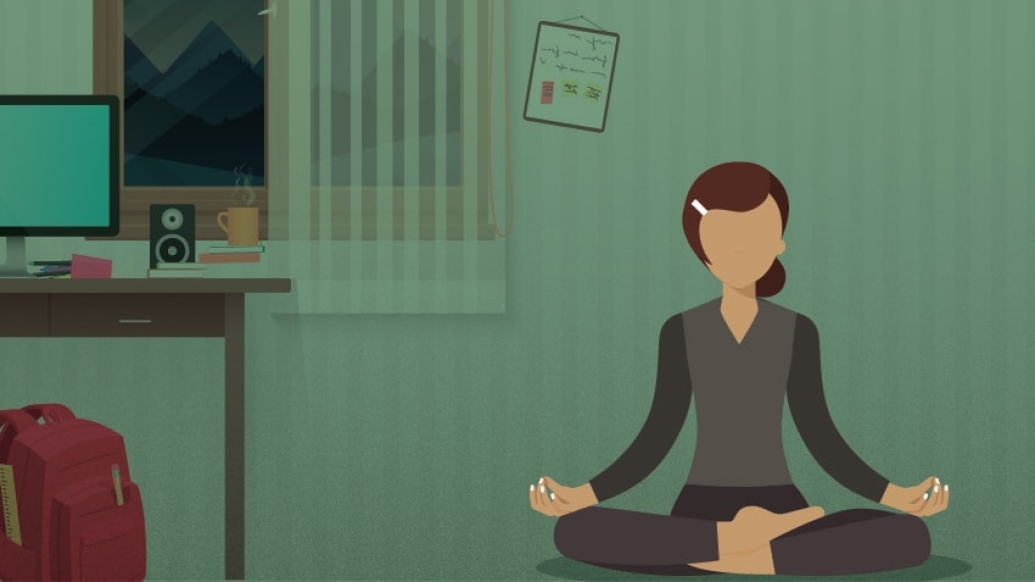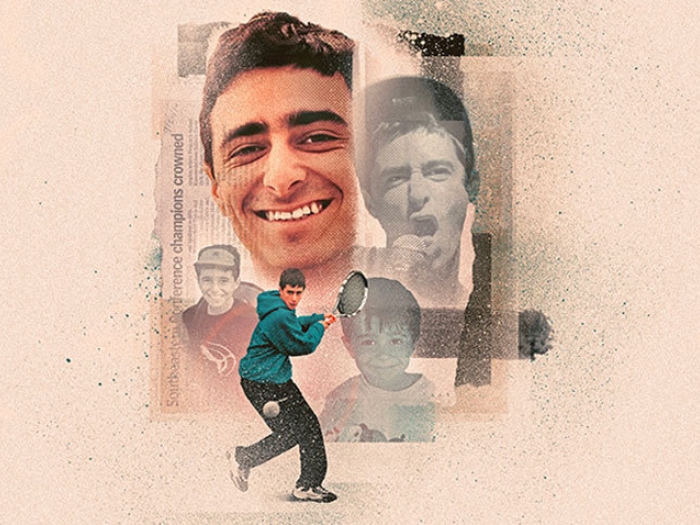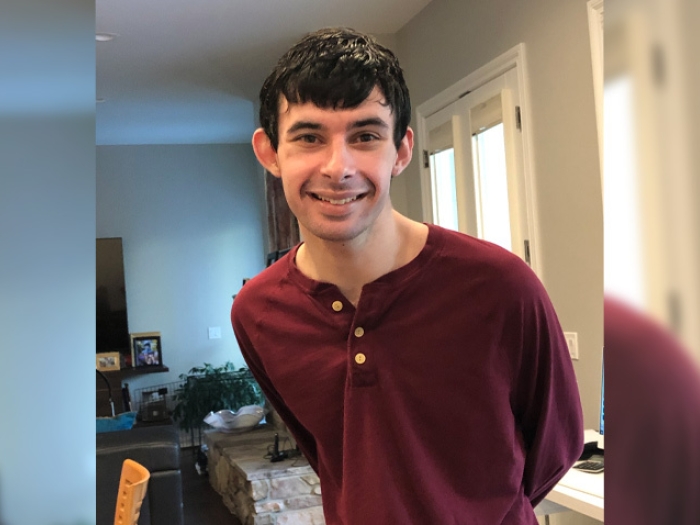A new OCD research study — now accepting teen patients — seeks to determine whether CBT improves brain function to help overcome obsessive-compulsive disorder.
7:00 AM
Author |

Most people with obsessive-compulsive disorder (OCD) — between 1 and 3 percent of the U.S. adult population — are diagnosed by the time they reach their 20s.
MORE FROM MICHIGAN: Sign up for our weekly newsletter
This is because symptoms commonly appear between the ages of 8 to 9 in boys and 12 to 13 in girls. And most cases, especially in children, are genetic.
"If someone has a first-degree relative with OCD, they are more likely to get it," says Kate Fitzgerald, M.D., an associate professor with the U-M Department of Psychiatry studying developmental changes in the brains of teens with the condition.
Fitzgerald's work seeks to understand whether cognitive behavioral therapy improves brain function to help kids overcome it. Her team is currently recruiting teens to participate in a study on this topic.
In her own words, she discusses the condition and the latest research.
What is OCD and what are the symptoms?
Fitzgerald: OCD is a common, chronic and disabling disorder in which a person has uncontrollable, recurrent thoughts that cause anxiety (obsessions) and repetitive behaviors (compulsions) intended to stop the feared thought from coming true. Repetitive thoughts include worries that pop out of the blue, such as contracting a rare disease or accidentally hurting someone.
SEE ALSO: How Diet Influences Mood and Mental Health
Unwanted thoughts about harm and safety might cause a person with OCD to worry that they will commit a crime, even though they would never dream of wanting to hurt someone or breaking the law. Obsessions about harm and safety can also make the affected person worry repeatedly that they might be the victim of a crime, even though they know they live in a safe place and likely will not be hurt. Some people with OCD obsess about symmetry and need to order items in their environment; things may need to look or feel just right. Repetitive fears of contamination can cause intense hand-washing, repetitive showering or excessive cleaning of one's home.
Repetitive behaviors, on the other hand, are intended to neutralize one's anxiety-provoking thought. A person with OCD wants so much to prevent a feared outcome that they think of every possible way to prevent it from happening. Someone may think, "If I do this activity, such as washing my hand 20 times, it will prevent me from contracting HIV." There is an overwhelming concern that they cannot shake it without doing a certain behavior.
Why is it important to study teens with OCD?
Treating kids early can save them a lifetime of distress. There is also evidence that cognitive behavioral therapy is actually more effective at younger ages.
One classic OCD symptom is called magical thinking. Can you explain what it is?
Fitzgerald: Magical thinking is an illogical thought pattern, which causes someone with OCD to link unrelated actions or events. Individuals may become preoccupied with unlucky numbers, colors, certain words, sayings or superstitions and link them to catastrophe or "bad things" that might happen. When this happens, the person may need to counteract the "bad thought" with a good one to feel safe again.
What is cognitive behavioral therapy and how might it be effective for someone with OCD?
Fitzgerald: CBT is a psychological treatment or "talk therapy." One particular type of CBT, exposure and response prevention, is effective for treating OCD. It teaches the patient to break the link between repetitive thought and ritualistic behaviors. By resisting the urge to perform a compulsive behavior, people with OCD learn that obsessive thoughts are insignificant, which lessens the anxiety that the thoughts produce. CBT can lead to significant improvement in functioning and quality of life.
SEE ALSO: Camp Helps Kids with Anxiety Learn Coping Skills (and Have Fun, Too)
Response prevention means learning to resist the urge to perform repetitive behaviors. Kids with OCD learn to push back on repetitive thoughts, doing the opposite of what the OCD is telling them to do. For example, if a person is worried about touching germs on a doorknob, I would have them touch it on purpose so that they can see nothing bad happened afterward. With practice, touching the doorknob becomes less scary, and the obsession that it will cause them to get sick starts to go away. The goal here is to get the patient to dismiss obsessive thoughts as "garbage" that they can ignore.
What happens in the brain during CBT?
Fitzgerald: We are studying this by using brain imaging. We think that CBT is exercising the frontal cortex part of the brain. It may be that a more active and flexible frontal cortex helps OCD patients to dismiss obsessions as "false alarms."
Why are you studying CBT and OCD?
We are hoping that we can develop an understanding of how CBT works in teens with OCD, so we can build even better treatments. In general, the goal with CBT is not to be cured but to get very good at managing the condition. CBT skills help kids to fight back against the bully that is OCD.
If you suspect your child has OCD, what should you do?
Point out to your child that their repetitive worries do not make sense and can be ignored. Praise them for resisting the urge to perform compulsions, and let them know that pushing back on repetitive thoughts helps to make the thoughts go away. If your child continues to struggle, look for a specialist to provide CBT-based exposure/response prevention to treat OCD. Teens can actually get CBT through the imaging study that we are conducting right now.
To participate in a study on the effect of CBT on teens with OCD, contact the OCD study team at 734-232-0443 or [email protected], or learn more here.

Explore a variety of healthcare news & stories by visiting the Health Lab home page for more articles.

Department of Communication at Michigan Medicine
Want top health & research news weekly? Sign up for Health Lab’s newsletters today!





